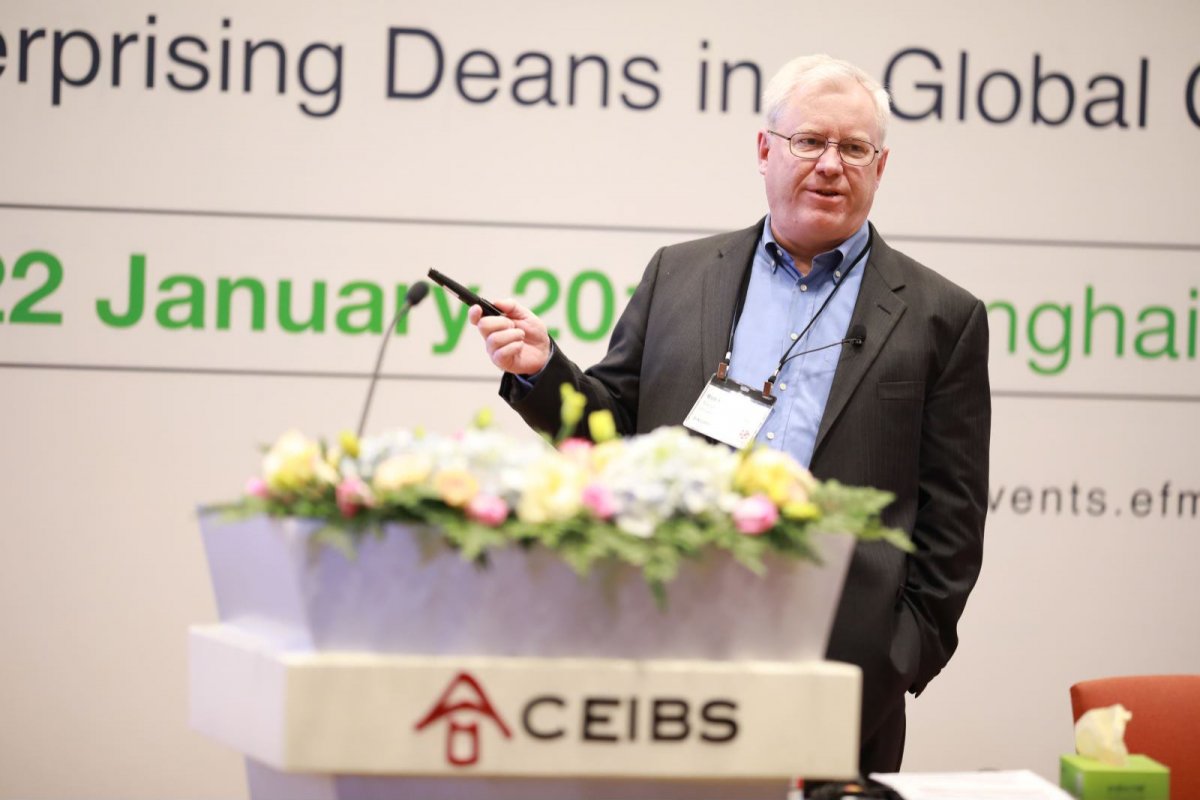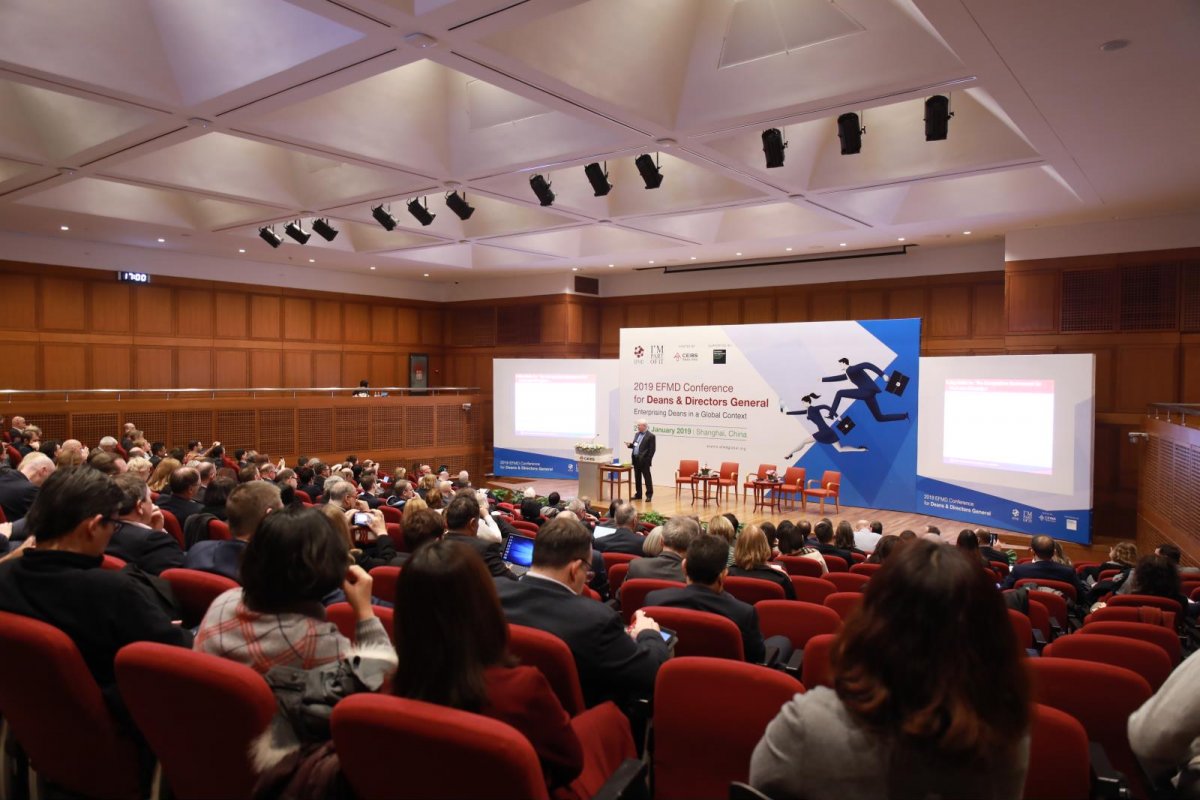Partnerships the Way Forward for Globalising B-Schools
January 21, 2019. Shanghai – The 2019 EFMD Conference for Deans & Directors General kicked off today with more than 300 academic leaders from business schools around the world attending the annual event hosted this year at CEIBS’ Shanghai Campus. As part of the event’s broader theme of “Enterprising Deans in a Global Context”, Nanyang Business School Dean Robert Kennedy shared a speech entitled Global Shift: The Impact of Changing World Economic Order on Business Schools. His talk looked at recent changes in the global economy, competitive environment for business schools, and business students’ profile and interests, as well as the implications of those changes on school programmes and curriculums and competition amongst schools.
“Twenty or thirty years ago, bright kids from all over the world would come to the US or Europe and get educated there and the first part of their careers would be with global companies based there and eventually they might return home,” Kennedy said.
As the number of emerging market (and, in particular, BRICS) multi-nationals in the Fortune 500 list has increased, however, many students are opting to return to their home regions after graduating for the simple reason that there exist a lot more opportunities there for newly minted MBAs. As a result, he explained, students are now looking for business schools to provide a broader range of offerings which reflect up-to-date, real-world conditions in those regions.
“[Students are] looking for experiences and cutting edge things from all over the world, from cutting edge industries,” he said. “They’re coming to learn about disruption. We have to teach different types of thing, include more geographic diversity and different types of cases.”
Among other things, these factors have led to a rise in the number of elite business schools operating in emerging markets and as well as an increased fragmentation of the types of programmes offered. In particular, these trends have placed greater pressure on full-time MBA programmes — the traditional cash cows of leading business schools. While acknowledging that the volatility of the top 10 schools worldwide has remained steady (or even decreased slightly), Kennedy told the audience that other factors such as new technology are forcing the majority of schools to rethink how they market themselves.
“The most basic level is what I call ‘tool kit learning’ — it’s how do you segment a bond, how to price a market? There are a thousand YouTube videos that will teach you that and students won’t pay tuition for it,” he said. “So, you have to have some value added beyond that, like how do you apply that stuff, how do you teach soft skills, how are you tapping into your alumni network?”
Given the demand for business education and proliferation of degrees, coupled with pressures on tuition and the emergence of new and more varied rivals, Kennedy stated there is a lot of pressure on schools to be more global. However, he pointed out that there exist only a handful of schools who can afford to be truly global on their own.
“It means we need to pair up somehow. We need joint programmes or to work through an alliance. Your students and faculty want global opportunities and unless you have a billion-dollar endowment you probably need to partner with somebody. The top 50 can’t really play the same game anymore,” he said.
The 2019 EFMD Conference for Deans & Directors General wraps up on January 22, when participants will dive into greater depth in areas such as the logic behind China’s financial reforms, entrepreneurial approaches in business education, and innovation in different areas of business school expertise. This year’s event also marks the first time in the EFMD’s 46-year history that the conference has been held outside of Europe. For more news, visit our News & Events page here.














